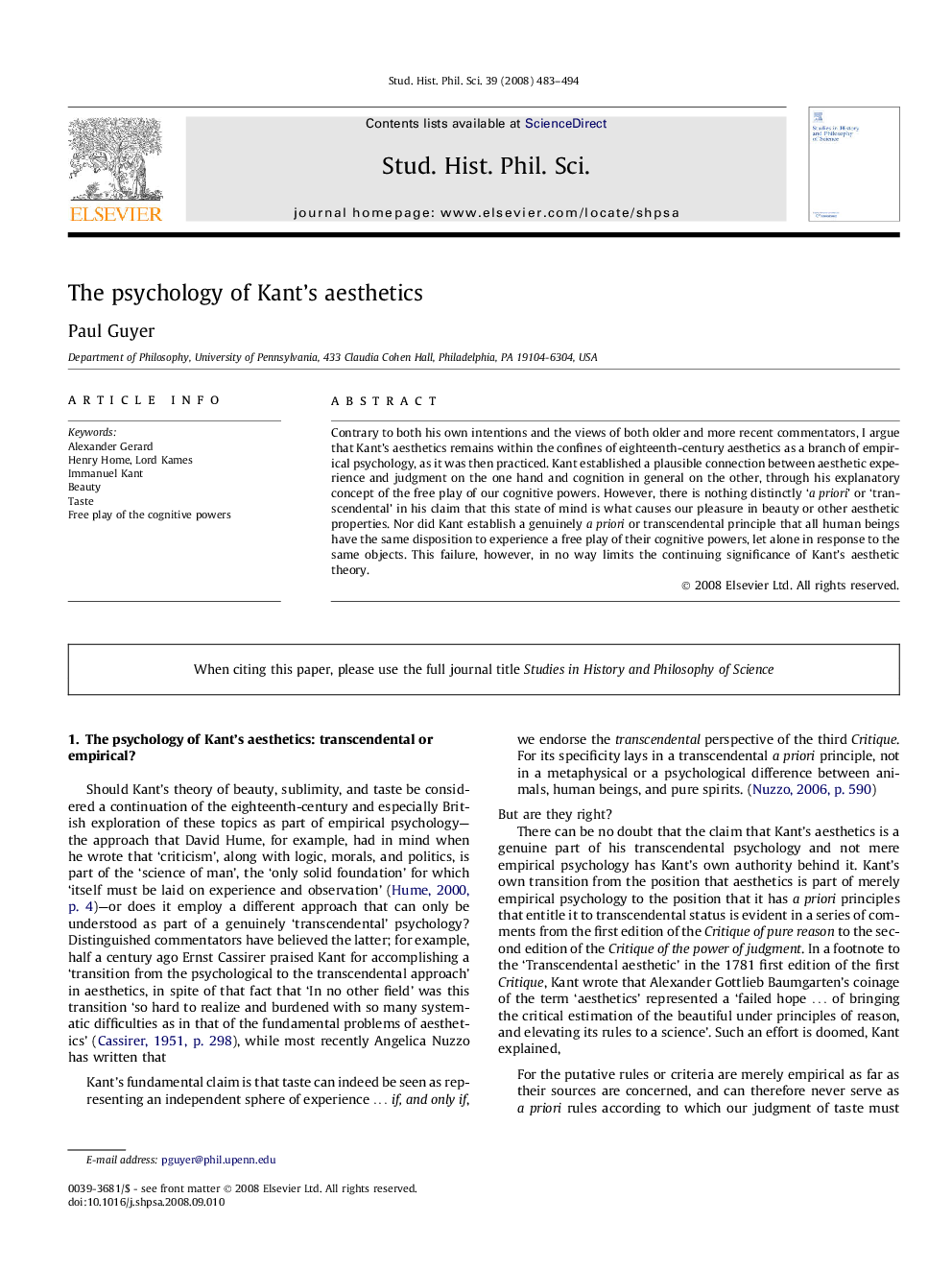| Article ID | Journal | Published Year | Pages | File Type |
|---|---|---|---|---|
| 1160701 | Studies in History and Philosophy of Science Part A | 2008 | 12 Pages |
Contrary to both his own intentions and the views of both older and more recent commentators, I argue that Kant’s aesthetics remains within the confines of eighteenth-century aesthetics as a branch of empirical psychology, as it was then practiced. Kant established a plausible connection between aesthetic experience and judgment on the one hand and cognition in general on the other, through his explanatory concept of the free play of our cognitive powers. However, there is nothing distinctly ‘a priori’ or ‘transcendental’ in his claim that this state of mind is what causes our pleasure in beauty or other aesthetic properties. Nor did Kant establish a genuinely a priori or transcendental principle that all human beings have the same disposition to experience a free play of their cognitive powers, let alone in response to the same objects. This failure, however, in no way limits the continuing significance of Kant’s aesthetic theory.
